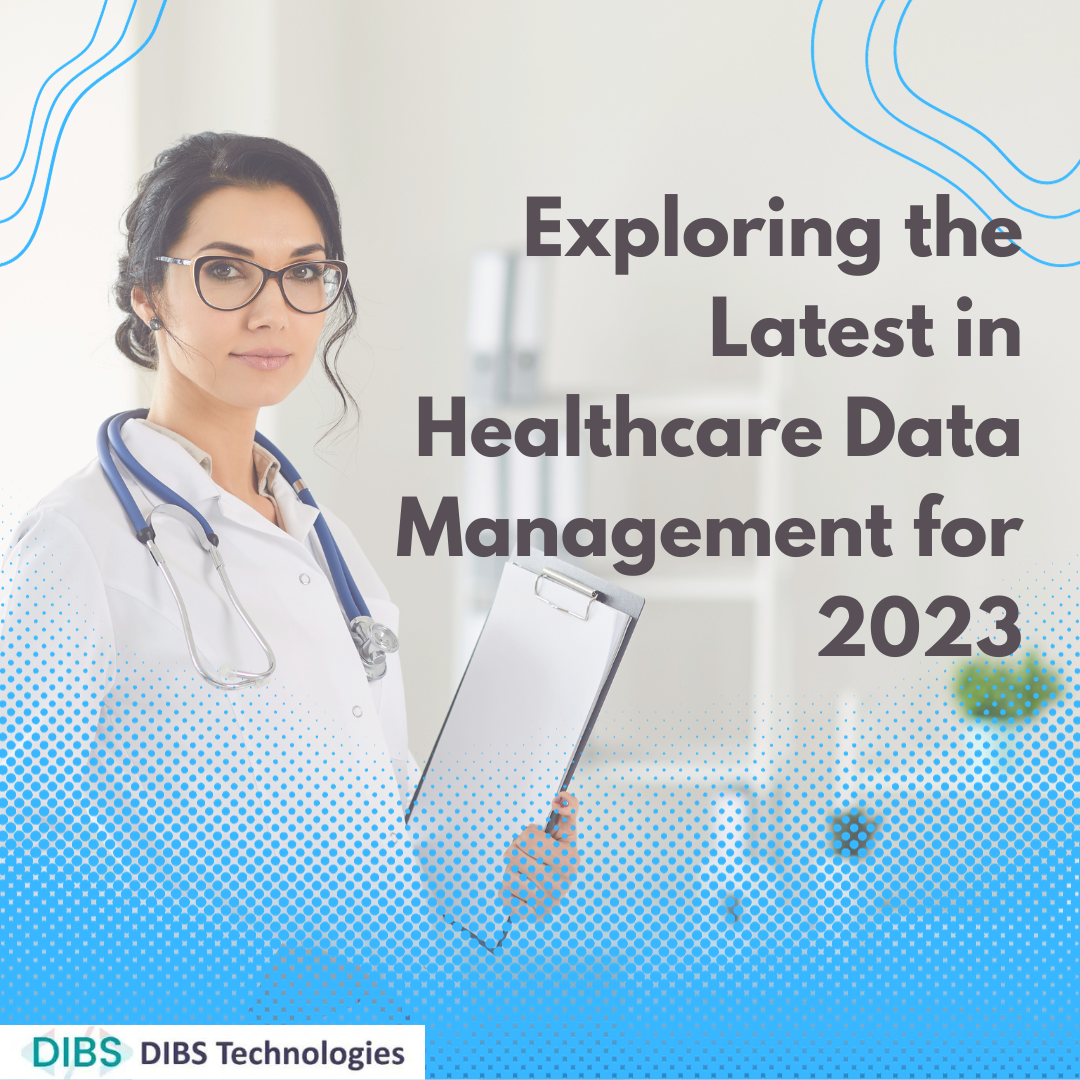Managing health information is central to healthcare delivery, research, and policy. The healthcare industry produces a wealth of data every day, including patient data, medical records, test results, insurance data, and other personnel data Effective healthcare data management requires this data to be collected, stored, processed, analyzed and distributed safely and efficiently.
Healthcare information control is the manner of gathering, storing, organizing, and retaining patient and administrative statistics within a healthcare company. It encompasses digital fitness information (EHRs), scientific imaging data, economic facts, patient demographics, and more. Healthcare providers see records not just as a byproduct of daily operations but as a valuable asset that, when managed effectively, they can harness to enhance patient care and optimize resource allocation.
The Importance of Healthcare Data Management
The right management of healthcare statistics is essential for the effective transport of healthcare offerings. By accumulating and studying affected person data, healthcare carriers can increase personalised remedy plans that enhance patient effects. Healthcare data management additionally facilitates figuring out developments, predicting outbreaks, and figuring out the effectiveness of treatments. These statistics are useful for public health officers and policymakers to expand effective healthcare guidelines and interventions.
In addition, healthcare information management guarantees the accuracy and integrity of healthcare facts. The integrity of healthcare statistics is vital to ensure patient safety, prevent scientific errors, and decrease healthcare prices. Effective healthcare facts management can help healthcare companies identify mistakes and inconsistencies in medical information, which can cause improved affected person outcomes.
Challenges in Healthcare Data Management-
While healthcare facts management gives numerous blessings, it additionally provides numerous demanding situations. One big task is data security. Healthcare data is surprisingly touchy and includes personal information, including medical histories, diagnoses, and treatments. Therefore, healthcare agencies should ensure that patient records are blanketed from unauthorized rights of entry to, use, or disclosure. Healthcare agencies should also observe various rules, inclusive of HIPAA (Health Insurance Portability and Accountability Act) and GDPR (General Data Protection Regulation).
Another project in healthcare data control is interoperability. Distinctive formats and systems often store healthcare information, making it hard to share information across unique healthcare vendors and groups. The providers need to broaden interoperability requirements to make certain that affected person facts are available and shared amongst healthcare carriers and corporations.
Healthcare Data Management Best Practices
To overcome challenges in healthcare data management, healthcare organizations need to adopt best practices. These include:
Data governance: Healthcare organizations should establish data governance policies and procedures to ensure that they manage patient information securely. It describes data ownership, data quality standards, and data privacy and security policies.
Data Security: Healthcare organizations must implement strong security measures to protect patient data from unauthorized access, use, or disclosure. This includes implementing access controls, encryption, and controlling the flow and use of data.
Communication: Healthcare organizations are adopting business standards that enable the exchange of patient information among healthcare professionals and organizations. This includes adopting standard data structures and frameworks, such as HL7 (Health Level Seven) and FHIR (Fast Healthcare Interoperability Resources).
Data analytics: Healthcare organizations should use data analytics tools to analyze patient data for trends, patterns and insights. This information can be used to improve patient outcomes, reduce healthcare costs, and design effective healthcare programs and interventions.
The Role of Technology
Advanced technologies: Advanced technologies, such as artificial intelligence (AI) and machine learning, are playing an important role in managing healthcare information.
Predictive analytics: AI can analyze historical patient data to predict disease progression, helping providers make proactive decisions.
Natural Language Processing (NLP): NLP technology can extract valuable insights from raw clinical data and patient records.
IoT devices: Internet of Things (IoT) devices can continuously monitor patient health and transmit data to EHRs in real-time.

Effective healthcare data management is essential for the delivery of high-quality healthcare services, research, and policymaking. Healthcare organizations can ensure that patient data is collected, stored, processed, analyzed, and disseminated in a secure and efficient manner by adopting best practices. This can lead to improved patient outcomes, reduced healthcare costs, and the development of effective healthcare policies and interventions.
DIBS team can help healthcare providers to manage all their data securely on an on-premise or cloud environment. We can also help in visualizing the data using Power BI. We can apply AI and machine learning can help predict the pattern and make important informed decisions.
Talk to our experts and find out more about the latest healthcare technologies and how the DIBS team can help you make more sense of all your data.







Leave a Comment